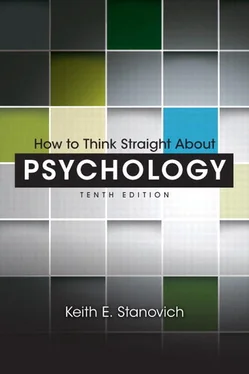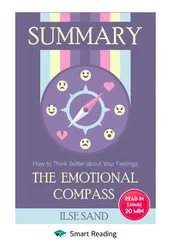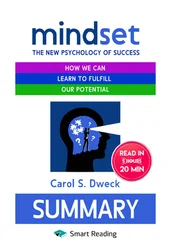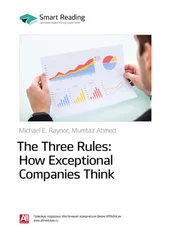McHugh, P. (2008) . The memory wars: Psychiatry’s clash over meaning, memory, and mind. Washington, DC: The Dana Foundation.
McNally, R. J., Bryant, R. A., & Ehlers, A. (2003) . Does early psychological intervention promote recovery from posttraumatic stress? Psychological Science in the Public Interest, 4(2), 45–79.
McNally, R. J., & Geraerts, E. (2009) . A new solution to the recovered memory debate. Perspectives on Psychological Science, 4, 126–134.
Medawar, P. B. (1967) . The art of the soluble. London: Methuen.
Medawar, P. B. (1979) . Advice to a young scientist. New York: Harper & Row.
Medawar, P. B. (1984) . The limits of science. New York: Harper & Row.
Medawar, P. B. (1990) . The threat and the glory. New York: HarperCollins.
Medawar, P. B., & Medawar, J. S. (1983) . Aristotle to zoos: A philosophical dictionary of biology. Cambridge, MA: Harvard University Press.
Medin, D. L., & Atran, S. (2004) . The native mind: Biological categorization and reasoning in development and across cultures. Psychological Review, 111, 960–983.
Meehl, P. E. (1954) . Clinical versus statistical prediction: A theoretical analysis and review of the literature.
Minneapolis: University of Minnesota Press. Meehl, P. E. (1986) . Causes and effects of my disturbing little book. Journal of Personality Assessment, 50, 370–375.
Meehl, P. E. (1993) . Philosophy of science: Help or hindrance? Psychological Reports, 72, 707–733.
Meier, B., Robinson, M., & Wilkowski, B. (2007) . Aggressive primes activate hostile information in memory: Who is most susceptible? Basic and Applied Social Psychology, 29, 23–34.
Meyers, L. (2008, January). Recommended reading: Psychologists share the contents of their self-help shelves. APA Monitor, pp. 26–27.
Michaels, D. (2008) . Doubt is their product: How industry’s assault on science threatens your health. New York: Oxford University Press.
Mielczarek, E., & Engler, B. (2012) .
Measuring mythology: Startling concepts in NCCAM grants. Skeptical Inquirer, 36(1), 35–43. Miller, K. R. (2008) . Only a theory: Evolution and the battle for America’s soul. New York: Viking.
Milton, J., & Wiseman, R. (1999) . Does psi exist? Lack of replication of an anomalous process of information transfer. Psychological Bulletin, 125, 387–391.
Mineka, S., & Zinbarg, R. (2006) . A contemporary learning theory perspective on the etiology of anxiety disorders. American Psychologist, 61, 10–26.
Mischel, W. (2008, December). The toothbrush problem. APS Observer, 21, 5.
Mlodinow, L. (2008) . The drunkard’s walk: How randomness rules our lives. New York: Pantheon.
Monk, R. (1990) . Ludwig Wittgenstein: The duty of genius. New York: Free Press.
Mook, D. G. (1982) . Psychological research: Strategies and tactics. New York: Harper & Row.
Mook, D. G. (1983) . In defense of external invalidity. American Psychologist, 38, 379–387.
Mook, D. G. (1989) . The myth of external validity. In L. W. Poon, D. C. Rubin, & B. A. Wilson (Eds.), Everyday cognition in adulthood and late life (pp. 25–43). Cambridge, England: Cambridge University Press.
Mook, D. G. (2001) . Psychological research: The ideas behind the methods. New York: Norton.
Moore, S. A., & Zoellner, L. (2007) . Overgeneral autobiographical memory and traumatic events: An evaluative review. Psychological Bulletin, 133, 419–437.
Morera, O. F., & Dawes, R. M. (2006) . Clinical and statistical prediction after 50 years: A dedication to Paul Meehl. Journal of Behavioral Decision Making, 19, 409–412.
Moskowitz, T., & Wertheim, L. (2011) . Scorecasting. New York: Crown.
Mulick, J., Jacobson, J., & Kobe, F. (1993, Spring). Anguished silence and helping hands: Autism and facilitated communication. Skeptical Inquirer, 17, 270–280.
Munro, G. (2010) . The scientific impotence excuse: Discounting belief-threatening scientific abstracts. Journal of Applied Social Psychology, 40, 579–600.
Murchison, C. (1934) . Handbook of general experimental psychology. Worcester, MA: Clark University Press.
Myers, D. G. (2006) . Social psychology. Columbus, OH: McGraw-Hill. National Reading Panel: Reports of the Subgroups. (2000) . Teaching children to read: An evidence-based assessment of the scientific research literature on reading and its implications for reading instruction. Washington, DC. National Safety Council. (2001) . Report on Injuries in America, 2001. Retrieved March 29, 2002, from www.nsc.org/ library/rept2000.htm Nickerson, R. S. (1998) . Confirmation bias: A ubiquitous phenomenon in many guises. Review of General Psychology, 2, 175–220. Nickerson, R. S. (2004) . Cognition and chance: The psychology of probabilistic reasoning.
Mahwah, NJ: Erlbaum. Nijhuis, M. (2008, June/July). The doubt makers.
Miller-McCune, pp. 26–35. Nolen-Hoeksema, S., Wisco, B., & Lyubomirsky, S. (2008) . Rethinking rumination. Perspectives on Psychological Science, 3, 400–424.
Novella, S. (2007, November/December). The anti-vaccine movement. Skeptical Inquirer, 31(6), 25–31.
Novella, S. (2010, November). The poor, misunderstood placebo. Skeptical Inquirer, 34(6), 33–34.
Novotney, A. (2008, July). Custody collaborations. APA Monitor, pp. 49–51.
Novotney, A. (2009, February). Dangerous distraction. APA Monitor, pp. 32–36. Oberman, L. M., & Ramachandran, V. S. (2007) . The simulating social mind: The role of the mirror neuron system and simulation in the social and communicative deficits of autism spectrum disorders. Psychological Bulletin, 133, 310–327. Obrecht, N. A., Chapman, G. B., & Gelman, R. (2009) . An encounter frequency account of how experience affects likelihood estimation. Memory & Cognition, 37, 632–643. O’Connor, A. (2011, December 27). Really? New York Times, p. D5. Offit, P. A. (2008) . Autism’s false prophets. New York: Columbia University Press.
Olivola, C. Y., & Oppenheimer, D. M. (2008) . Randomness in retrospect: Exploring the interactions between memory and randomness cognition. Psychonomic Bulletin & Review, 15, 991–996.
Olson, R. K. (2004) . SSSR, environment, and genes. Scientific Studies of Reading, 8, 111–124.
Oreskes, N. (2004) . Beyond the ivory tower: The scientific consensus on climate change. Science, 306, 1686.
Oreskes, N., & Conway, E. (2011) . Merchants of doubt. London: Bloomsbury.
Overskeid, G. (2007) . Looking for Skinner and finding Freud. American Psychologist, 62, 590–595.
Paloutzian, R. F., & Park, C. L. (Eds.). (2005) . Handbook of the psychology of religion and spirituality. New York: Guilford Press.
Park, R. L. (2008) . Superstition: Belief in the age of science.
Princeton, NJ: Princeton University Press. Parker, I. (2010, May 17). The poverty lab. The New Yorker, pp. 79–89.
Parker-Pope, T. (2009, January 13). A problem of the brain, not the hands. New York Times, p. D5.
Parker-Pope, T. (2011, October 10).
Prostate test finding leaves a swirl of confusion. New York Times Wellness Blog, pp. 1–4. Retrieved October 12, 2011, from, http://well.blogs.nytimes. com/2011/10/10/prostate-testfinding-leaves-a-swirl-of-confusion/ Pashler, H., McDaniel, M., Rohrer, D., & Bjork, R. (2009) . Learning styles: Concepts and evidence.
Psychological Science in the Public Interest, 9, 105–119. Paulos, J. A. (2001) . Innumeracy: Mathematical illiteracy and its consequences. New York: Hill and Wang.
Pennington, B. F., & Olson, R. K. (2005) . Genetics of dyslexia. In M. J. Snowling & C. Hulme (Eds.), The science of reading: A handbook (pp. 453–472). Malden, MA: Blackwell.
Peterson, C. (2009) . Minimally sufficient research.
Perspectives on Psychological Science, 4, 7–9. Petry, N. M. (2005) .
Pathological gambling: Etiology, comorbidity, and treatment. Washington, DC: American Psychological Association. Pigliucci, M. (2010) . Nonsense on stilts. Chicago: University of Chicago Press.
Читать дальше












